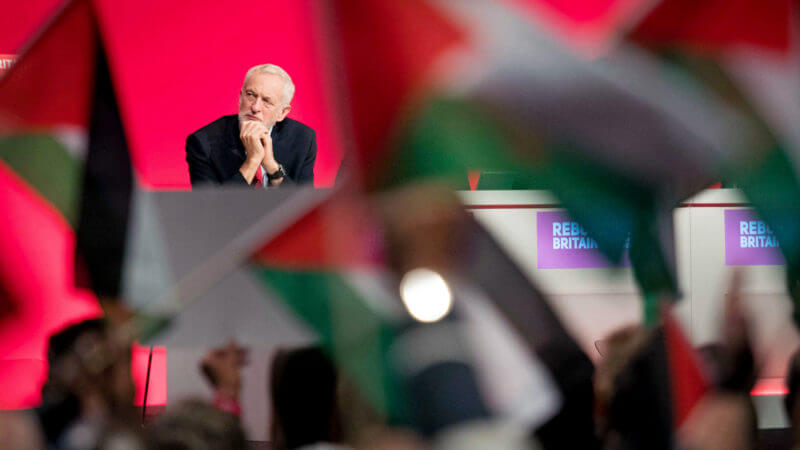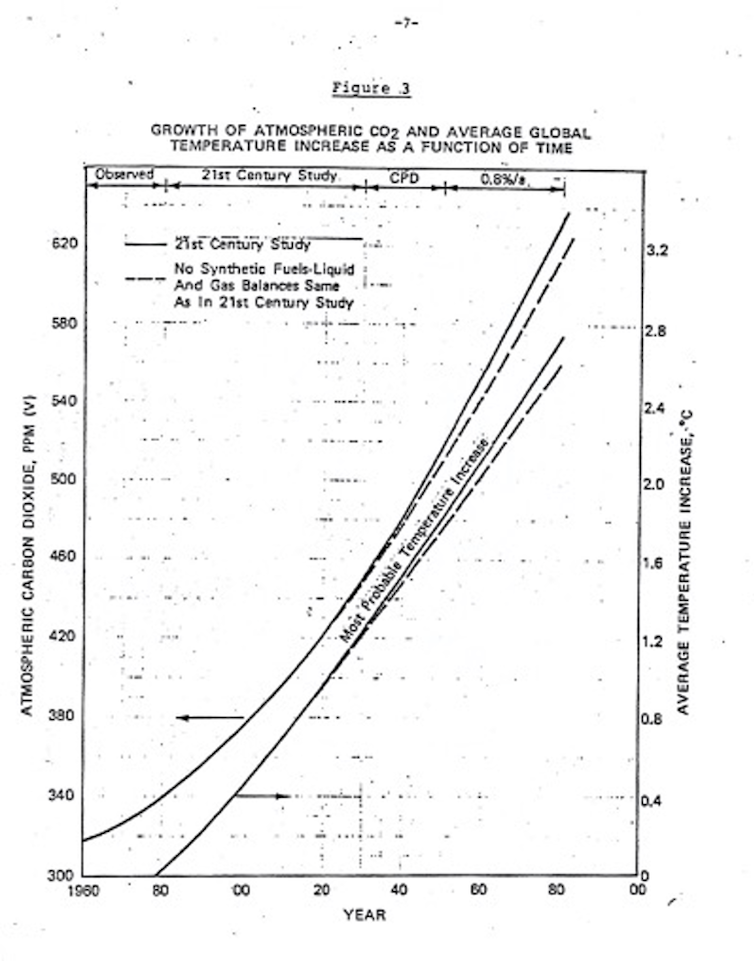Over 500 Scholars Launch Fightback Against Israel Lobby’s Antisemitism Smear of UK Academics
The question, raised by the petition and letter of complaint, is whether universities like Glasgow will continue to submit to such attacks on academic life under the cover of false or evidence-free claims of anti-Semitism.
GLASGOW, SCOTLAND — Hundreds of international scholars have begun a fightback against pro-Israel lobbyists who have been scoring increasingly high-profile victories on UK campuses as they seek to curb academic freedoms under the guise of stamping out antisemitism.
Glasgow university officials have found themselves in the eye of a storm this week, accused of “capitulating” in two separate cases that have undermined academic research into the activities of Israel and its supporters.
More than 500 scholars from around the world, including a Nobel prize winner, Royal Society fellows, and former and current presidents of major academic bodies, signed a petition delivered to the university this week in protest.
They called it “extraordinary” that Glasgow had recently apologised and labeled as “hate speech” a peer-reviewed article on the Israel lobby in the university’s postgraduate magazine. The scholars warned that Glasgow’s actions could have “potentially very damaging” consequences for research on Israel.
They pointed out that the university’s stance “implies that other groups, states and corporations can all be the subject of critical academic analysis, but commentary on pro-Israel advocacy must be limited”.
Separately, the main body representing Middle East academics in Britain wrote to the Scottish university last week after its politics department took the unprecedented step of demanding the right to vet a talk on Israeli and Palestinian politics.
The university had invited a Danish professor to speak about his latest book but then insisted on new conditions – apparently after caving into pressure from a Jewish student body.
Concerns have also been raised that the university appears to have intended to seek the Jewish students’ approval before agreeing to the talk going ahead.
Antisemitism redefined
Both incidents follow Glasgow’s adoption last November of a controversial new definition of antisemitism that has been aggressively promoted by pro-Israel lobbyists.
Most UK universities have now adopted the International Holocaust Remembrance Alliance’s definition following threats from the rightwing government of Boris Johnson last year to inflict financial penalties on any that demurred.
There were early warnings, including from the main author of the IHRA definition, that it would be weaponised and critical research on Israel curtailed. The IHRA’s definition turns the focus away from hatred or fear of Jews. Instead most of its 11 illustrative examples of antisemitism relate to Israel.
The severe threat to academic freedom posed by pro-Israel lobbyists and the IHRA definition were highlighted earlier this month when an expert scholar on propaganda and Islamophobia, David Miller, was sacked by Bristol university.
The lobby had accused him of antisemitic “harassment” after he highlighted its role as one of “five pillars” supporting the promotion of Islamophobia – or hatred towards Muslims, Arabs and Palestinians.
Bristol university dismissed Miller, even though documents leaked last week showed that the senior lawyer it appointed to investigate the case found there was no misconduct by Miller and that there was “no basis for any disciplinary action”.
Twists and turns
Glasgow university has become a key battleground in the fight to protect academic freedom after its public twists and turns over an academic paper published in its peer-reviewed online journal, eSharp, in 2017.
Jane Jackman, who was then a scholar at Exeter University, published the paper, titled Advocating Occupation, examining the evolution and role of Israel lobby groups in the UK, in the immediate wake of a 2017 documentary aired by Al-Jazeera on the lobby’s interference in British politics.
Footage filmed by an undercover reporter showed an Israeli embassy official, Shai Masot, covertly colluding with Zionist groups to undermine senior UK politicians – especially the then head of the opposition Labour party, Jeremy Corbyn – who were seen as too critical of Israel’s oppression of Palestinians.
To pre-empt a diplomatic incident, Israel hurriedly recalled Masot.
The hundreds of scholars supporting Jackman’s research have described it as an “account of public relations, lobbying, advocacy and information management” in what “is a well-established area of academic study”.
Nonetheless, in an observation that would become all too prescient for Jackman herself, she concluded in her paper that “critics of Israeli policy expose themselves to the possibility, indeed the probability, of being smeared as anti-Semites”.
However, the university dismissed initial complaints against Jackman’s paper shortly after it was published.

Corbyn sits on stage while audience members wave Palestinian flags during the Labour’s 2018 Party conference. Stefan Rousseau | PA via AP
‘Moot’ point
But last December, a month after the university formally adopted the IHRA definition, a prominent pro-Israel blogger revived the pressure campaign. David Collier marshalled fellow activists to write to Sir Anton Muscatelli, Glasgow’s principal, complaining that Jackman’s paper was “laden with conspiracy, antisemitism and errors”.
He accused Glasgow staff of demonstrating “heavy antisemitism” in clearing it for publication.
Jackman’s paper, he claimed, was a “poison spreading through our universities. With malignant cells in place such as Exeter, [London’s] SOAS and Warwick – it acts as a cancer – with new academics, freshly dosed with antisemitic ideology, leaving the nests to spread the sickness elsewhere.”
Paradoxically, Collier had been identified by Jackman as particularly adept at characterising critics of Israel as “haters” and antisemites. Collier, she had noted, was a favourite of the Israeli embassy. Officials there had invited him the previous year to help train more than 100 representatives from British pro-Israel groups on advocacy tactics to burnish Israel’s image.
But this time, the university reversed course, apparently fearing that it might fall foul of the illustrative examples of the IHRA definition it had signed up to.
The journal’s editors subverted their own peer review processes – four years after the fact – and issued an apology in May in a lengthy online preface to the article.
They claimed the paper failed to meet academic standards and caused “considerable offense”, concluding that it promoted “an unfounded antisemitic theory regarding the State of Israel and its activity in the United Kingdom”.
In a response to inquiries from the Jewish Chronicle weekly newspaper, Glasgow university suggested that action had been taken against Jackman’s paper in accordance with the IHRA definition of antisemitism. It also implied that her research was an example of “hate speech”.
The Chronicle was at the forefront of a years-long, evidence-free campaign to tar the British Labour party under its previous leader, Jeremy Corbyn, as beset by antisemitism. Corbyn was a well-known champion of Palestinian rights.
Astonishingly, when Jackman demanded to know what “antisemitic theory” she had promoted, the university backed off. In an email sent to her last month and seen by MintPress, the university’s complaints resolution office called her paper “thought-provoking” and added that whether her argument could be “described as antisemitic is also a moot point”.
According to the dictionary, “moot” means either “subject to debate, dispute or uncertainty”, or of “little or no practical relevance”.
In other words, the university appears to have conceded that casually and without evidence it defamed the work of an academic, with potentially catastrophic consequences for her personal and professional life.
Jackman told MintPress: “It’s not so much the personal offence these allegations caused me, bad as that was, it’s the chilling effect this will have on early career academics, and the consequent silencing of debate.”
Ideological zeal
Jackman’s case neatly illustrates the use to which the lobby has been able to put the IHRA definition, both as a way to stifle criticism of Israel and, more recently, as a way to cover its own tracks as it does so.
There have been very obvious problems with many of the IHRA’s 11 examples.
Two of them, in particular, have been regularly cited by the lobby. They claim it is antisemitic to describe Israel as “a racist endeavor” or require of it “behavior not expected or demanded of any other democratic nation”.
But even Israeli scholars have long defined Israel as a non-democracy, terming it instead an “ethnocracy”. They note that Israel mimics a democratic state while actually according rights and privileges to one ethnic group, Jews, that it denies to another, Palestinians.
And the New York-based Human Rights Watch and B’Tselem, Israel’s most respected human rights organisation, have both recently issued reports characterising Israel as an apartheid state.
Nonetheless, Israel’s lobbyists have doubled down on another IHRA example, which suggests it may in certain contexts be antisemitic to accuse “Jewish citizens of being more loyal to Israel, or to the alleged priorities of Jews worldwide, than to the interests of their own nations”.
Indeed it would be antisemitic, if such an accusation were made collectively about Jews or solely because activists were Jewish.
As Jackman and others have pointed out, many non-Jews are also Zionists and actively lobby to shield Israel from criticism.
But ardent pro-Israel activists appear to have found in this IHRA example the perfect cover for concealing their own activism on behalf of Israel – activism that is determined not by their Jewishness but by their ideological zeal in promoting Israel and Zionism as political causes.
Apartheid Week
Jewish activists in the Israel lobby, in particular, are not shy to say that Israel is at the core of their identity – and that they view a self-declared Jewish state as a vital safe haven for them in the face of a supposedly rising tide of antisemitism on the left. Tangible antisemitism on the right, which is much less critical of Israel, appears to be of much less concern.
These activists also belong to groups that declare themselves committed to lobbying for Israel.
In her paper, Jackman documents parts of the network of pro-Israel groups in the UK that advertise their commitment to Israel and their collaboration with it in organising advocacy, such as the British Israel Communications and Research Centre (Bicom).
And she sets out Israel’s own efforts to mobilise these groups to better serve its interests, such as against the international boycott (BDS) movement. At major Israeli establishment forums, such as the annual Herzliya Conference on Israel’s security priorities, discussions centre on ways to recruit Jewish and Christian supporters abroad to “win the battle of the narrative”.
Jackman further highlights that Bicom has established a satellite organization, We Believe in Israel, “with the explicit purpose of mobilizing and resourcing an army of loyalists to challenge detractors, promote Israel and defend its actions”.
Its director, Luke Akehurst, is also a senior figure in Labour First, a right-wing section of the Labour party that worked to undermine Corbyn for supposedly indulging antisemitism in the party.
We Believe has subsequently made private a Youtube video in which, according to Jackman, Akehurst says many thousands of supporters, nearly half of them non-Jews, have been recruited to serve as “allies in the battle for Israel’s reputation”.
Replicating the situation in the US, Jackman notes, British Christian fundamentalists – who view Israel as part of divine prophecy to bring nearer a supposed end times – have become a particularly vocal part of the lobby.

Activist from the Scottish Palestine Solidarity Campaign protest Israel’s violations of Palestinian rights outside the Glasgow Sheriff Court, Scotland on July 10, 2017. (Photo: Scottish Palestine Solidarity Campaign/Facebook)
‘Hate crimes
She also points out that, well before the IHRA redefined antisemitism to focus on Israel, university campuses were being targeted by the lobby in a bid to silence activism in support of Palestinian rights.
A popular public figure, comedienne Maureen Lipman, became the face of claims that British universities were failing in a duty of care to Jewish students by allowing other students to mark Israel Apartheid Week.
The argument glossed over the question of what duty of care the universities owed to Palestinian and Muslim students who wished to draw attention to Israeli policies that oppress Palestinians.
Friends of Israel groups picked up Lipman’s theme in letter-writing campaigns to universities, calling Israel Apartheid Week “hate crimes” and evidence of antisemitism.
As a result, a number of universities hurriedly closed down Palestinian solidarity activism, including the University of Central Lancashire, Exeter, and Central London.
Immune to criticism
And yet, despite all these highly visible pressure campaigns to stop criticism of Israel, the lobby groups behind them have decried as antisemitism any effort, such as Jackman’s, to analyse or record how such lobbying works in practice.
With the assistance of the IHRA definition, they are not only making it even harder to criticise Israel but also ever harder to criticise themselves for making it so difficult to criticise Israel.
As occurred in the Labour party under Corbyn, any attempt to analyse how antisemitism is being weaponised by the lobby is itself ascribed to antisemitism. The lobby has thereby made itself immune to all criticism.
As Jackman noted in her paper, the lobby used precisely these tactics to avert the normal fallout from the revelations of Israeli interference in UK politics made by the Al-Jazeera documentary. That, she pointed out, would have been unavoidable “had Russia, Iran or indeed any other state been caught behaving in a like manner”.
In backing Collier’s description of Jackman’s paper as “hate speech”, Glasgow University has sent a chilling message to academics: examine Israel and its lobbyists at your peril.
In response, the petition – signed so far by more than 500 academics from 28 countries – was sent to Prof Muscatelli and made public on Monday. One of the organisers, Noam Chomsky, the world-renowned linguist, stated: “The capitulation by the University of Glasgow is a serious blow to academic freedom that should not be allowed to stand.”
The signatories warn:
“Others [states, corporations or groups] may be described as organising, planning or seeking influence, and even disseminating propaganda or misleading accounts. But it is falsely asserted that description of such behaviour by Israel or its advocates cannot be neutral observation or analysis; a racist meaning and intent is imputed and assumed without evidence.”
The petition organisers also point out that “it is unusual for a case to attract so much international attention from academics across such a wide range of disciplines.”
They include a Nobel laureate, George Smith, two fellows of the Royal Society – physicist Malcolm Levitt and the mathematician David Epstein – and the acclaimed historian Sheila Rowbotham.
Two former presidents of the British Sociological Association, and the current president of the International Sociological Association, have also signed, as well as the president of the Latin American Studies Association. There are 20 signatories from major universities in Israel, as well as Salman Abu Sitta, President of the Palestine Land Society.
The petition notes that making false claims of antisemitism “weakens the struggle against actual racism”.
Self-censorship
Where this is likely to lead is highlighted by another incident at Glasgow that has similarly disturbed leading academics.
Last week, the British Society for Middle Eastern Studies (Brismes) wrote to Glasgow university expressing concern that its politics department had sought to vet a talk by Somdeep Sen, a professor at Roskilde University in Denmark. The department had invited Sen to speak on his new book, Decolonising Palestine, published by Cornell University Press.
Brismes is the largest national academic association in Europe focused on the study of the Middle East and North Africa.
According to the letter, Sen was contacted by the department to say it had received “a message of concern from the University’s Jewish Society” about his forthcoming talk and that he would need to “provide information” on the main points and any slides he intended to use.
According to Brismes, it was also intimated that the information would be shared with the Jewish Society to assess whether it would have “negative repercussions” for Jewish students.
The letter – sent by Brismes’s president, Baroness Afshar – warned that Glasgow’s treatment of Sen was illustrative of “the pernicious effect of the IHRA definition of antisemitism” and “its conflation of criticisms of Israel and Zionism with antisemitism”.
Additionally citing the university’s apology over Jackman’s paper, Brismes warned that Glasgow’s decisions were having “a chilling effect when it comes to public debate and research on Israeli government policies, pro-Israel advocacy and Palestinian groups” and would lead to “self-censorship on the part of individual scholars and students”.
A spokesman for the university told MintPress that Glasgow had “not prohibited any academic from speaking at the University… nor do we intend to prevent Dr Sen from doing so”.
He added that the university was separately “considering [the petition] fully” and would “respond to the signatories in due course”.
#MeToo moment
Self-censorship by academics appears to be very much the goal of the lobby. The Community Security Trust – yet another pro-Israel lobby group –published a report into what it claimed was “widespread antisemitism at British universities” last December – just as Collier and the Jewish Chronicle began their campaign to pressure Glasgow university to disown Jackman’s scholarship.
The Trust was also central to the pressure campaign to get Bristol university to sack David Miller, a sociologist and expert on Islamophobia. Leaked documents revealed by Electronic Intifada last week show not only that Bristol university’s investigation concluded that there was no misconduct from Miller but that its findings suggest that the Community Security Trust and two unnamed Jewish students colluded to smear Miller.
The pair described Jewish students as “terrified” of Miller, but the investigation showed neither had attended his classes and they had not spoken to students who had.
The only complaint about his teaching related to an optional essay question set by Miller on lobbying that made no mention of Israel, Zionism or Jews. One of the two students, however, claimed that answers to it might lead to “antisemitic tropes”.
Nonetheless, despite the findings of its own investigation, Bristol dismissed Miller – apparently to avoid the increasingly loud noise the lobby had whipped up over the case, including a letter harshly criticising the university for “inaction” from more than 100 British parliamentarians.
The Community Security Trust’s report highlights as an example of “widespread antisemitism” at British universities an incident in which a lecturer at Warwick university made a complaint against a Jewish student who accused her of making an antisemitic comment.
Exploiting the #MeToo moment, both the Trust and the Union of Jewish Students have pushed for Jewish students “to be believed” – whatever allegations they make.
James Harris, until recently the president of the Union of Jewish students, observed at the time of the Trust’s survey:
“It is evident that certain universities have woefully disregarded their duty of care to Jewish students. … When antisemitism does arise, Jewish students rightly expect that it will be taken seriously and dealt with effectively.”
Lord Mann, the government’s antisemitism czar, stated of the Trust’s report: “All students should have the right to be who they want to be on campus. That is as true for Jewish students as anyone else. Those rights must not be dictated by fellow students, academic staff, students’ union officials.”
But, of course, Jewish students and organisations that want criticism of Israel off-limits, or their own pro-Israel activism immune from scrutiny, are denying “the right to be who they want to be on campus” to many Arab, Muslim, Palestinian and leftwing students.
The question, raised by the petition and letter of complaint, is whether universities like Glasgow will continue to submit to such attacks on academic life under the cover of false or evidence-free claims of antisemitism.
The signs so far are not promising.
Author | Jonathan Cook is an award-winning journalist and MintPress contributor. Cook won the Martha Gellhorn Special Prize for Journalism. His latest books are Israel and the Clash of Civilisations: Iraq, Iran and the Plan to Remake the Middle East (Pluto Press) and Disappearing Palestine: Israel’s Experiments in Human Despair (Zed Books). His website is www.jonathan-cook.net.
https://www.mintpressnews.com/over-500-scholars-launch-fightback-against-israel-lobbys-antisemitism-smear-of-uk-academics/278772/






